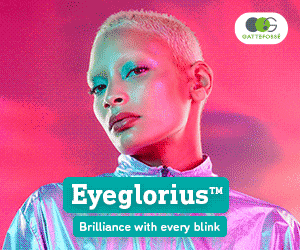Smell and Emotion - the Reality and Technology behind Fragrance Marketing
Emotion is key to the marketing of so many fragrances. We often hear references to lust, desire and even envy associated with marketing of fragrances. "These words are liberally sprayed around the fragrance halls of department stores. But do people really understand just how critical the sense of smell is to our emotional make up and psychological wellbeing?" asks Duncan Boak, a speaker at the forthcoming IFRA UK Fragrance Forum to be held on 16th October.
Mr Boak is Founder and Director of Fifth Sense, the first charity for smell and taste disorder sufferers and himself affected by anosmia following an injury. He and Fifth Sense's members understand perhaps better than anyone just how losing one's sense of smell can affect life.
Duncan Boak draws on their experiences to illustrate that, as far as the sense of smell is concerned, you really don't know what you have got until it is gone.
For those fortunate enough to retain their sense of smell, another of the speakers will explore the topic of ‘Scent and Technology', reviewing innovations and the fragrance experience.
According to Emmanuelle Moeglin, Global Fragrance and Personal Care Analyst at Mintel, "Over half of European mobile phone users own a smartphone; however only 6% of consumers are interested in using a mobile app to determine the right fragrance for them". Ms Moeglin will explore just how manufacturers can bring technology and scent experiences together to bridge the gap. She believes that technology devices, digital tools and innovations such as ‘fragrance from within' will in future enhance our sensory smell experiences and affect our moods.
Do you smell what I smell?
No-one else knows what your nose knows. According to Dr Darren Logan, an expert in genetics and the effects of smell, there may be much greater diversity between humans than was previously thought to be. In fact, there is no ‘true’ smell for any given odour at all.
He says: “We trust our senses to provide us with information about the world around us, but is our perception an accurate representation of our external environment? By studying the genetics and neurobiology of olfaction, we and others, are discovering remarkable diversity exists in our sense of smell”. Dr Logan will be demonstrating that genetic variation in the olfactory system is unusually high when he speaks at the IFRA UK Fragrance Forum on 16th October.
“This genetic variation contributes to inherent, fixed differences in what each individual can smell and can also predict how we respond to odours,” he says. In his talk, he will also present new research suggesting the diversity of neurons in our noses –the cells that detect odours– also varies significantly between individuals.
Dr Logan adds: “This suggests that we all have very different olfactory sensitivities. We have been charting the neuronal make-up of noses, investigating what controls the neuronal pattern and asking how we might influence it, with a view to improving olfactory ability and treating olfactory conditions. Taken together, I would argue that we are all olfactorily unique and that there is no ‘true’ perception of any given smell. However, I propose that the complexity of the olfactory system may buffer the effect of this variance. The majority of us are therefore likely to experience a reasonably similar percept of most fragrances, though notes may subtly differ. In the near future it may be feasible to incorporate genetic information from a target group into the fragrance production process."



